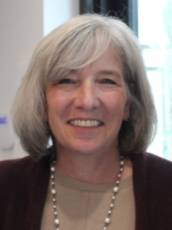Poverty Alleviation and Economic Justice: Leveraging Insights from Community-Engaged Research
Heather Bullock, UC Santa Cruz
Community-engaged research is a powerful strategy for gaining a deeper understanding of lived experiences of poverty and economic hardship, assessing services and programs, and informing systemic change (Bertram & Bullock, 2023). Focusing on the Center for Economic Justice and Action’s (CEJA) research collaborations with nonprofit organizations, this presentation illuminates the transformative potential of community-engaged research to advance anti-poverty initiatives. I discuss CEJA’s partnerships examining: (1) low-income Latinx mothers’ use of mainstream and alternative financial services (Bullock et al., 2020); (2) the impact of affordable housing on multi-generational economic security (e.g., asset building), civic and social engagement, well-being (e.g., health, food security), and opportunity (e.g., adult and child educational attainment); and (3) the effects of a guaranteed income pilot program on farm-working families and survivors of intimate partner violence. The UC Essential Needs Research, Training, and Promising Practices Consortium, a CEJA initiative across the UC system addressing student food insecurity, housing precarity, and other basic needs, is also discussed. Recommendations for developing robust university-community partnerships and supporting anti-poverty initiatives are highlighted.
Heather Bullock is Director of the Center for Economic Justice and Action (CEJA) and Professor of Psychology at the University of California, Santa Cruz. A community-engaged social psychologist. Heather’s research examines women’s pathways in and out of poverty and homelessness, women’s experiences with public assistance programs, and how classism, racism, and sexism influence policy attitudes and the treatment of low-income women and their families. She served as inaugural chair of the American Psychological Association’s (APA) Committee on Socioeconomic Status and was a member of APA’s Deep Poverty Initiative Working Group. Her books include Psychology and Economic Injustice: Personal, Professional, and Political Intersections (with Bernice Lott); Women and Poverty: Psychology, Public Policy, and Social Justice; Poorly Understood: What America Gets Wrong about Poverty (with Mark Rank and Lawrence Eppard); and The Psychology of Poverty, Wealth, and Economic Inequality (with Deborah Belle). Before joining UCSC’s faculty, Heather was an APA/AAAS Congressional Fellow with the U.S. Senate Committee on Health, Education, Labor, and Pensions – Democratic Office, working for Senator Edward M. Kennedy on policies related to poverty, food insecurity, and early childhood education. Currently, she is president elect of the Society for the Psychological Study of Social Issues.









